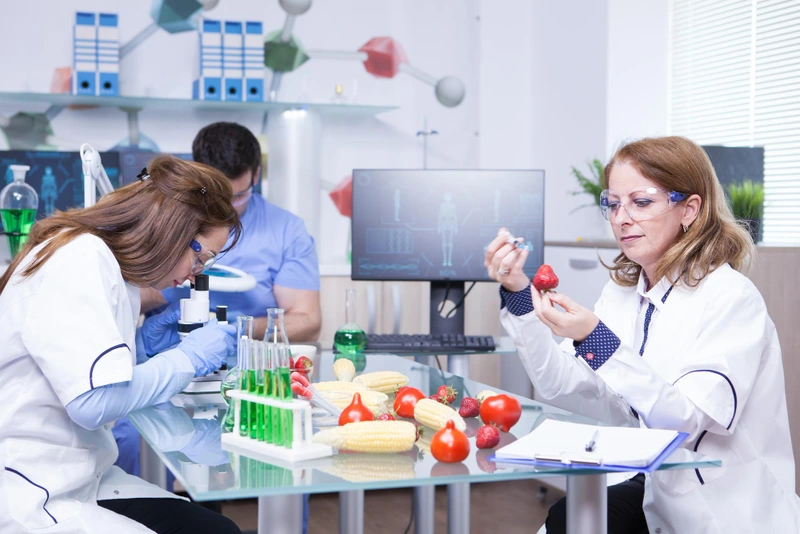- Published on: May 17, 2024
- 2 minute read
- By: SecondMedic Expert
The Digital Transformation Of Healthcare: How Online Doctor Consultations Are Revolutionizing Medicine
The emergence of online doctor consultations has had a significant impact on the medical industry recently, providing previously unheard-of levels of accessibility and convenience for healthcare services. With the advent of digital technology, patient-provider interactions have undergone a revolutionary transformation, dismantling conventional boundaries and enabling convenient access to high-quality healthcare services. We shall examine the development, advantages, and effects of online medical consultations on contemporary healthcare in this blog.
The Rise of Online Doctor Consultations
The practice of providing medical advice, diagnosis, and treatment plans via digital platforms is commonly referred to as online doctor consultation, or telemedicine. Particularly during the COVID-19 pandemic, which highlighted the need for remote healthcare solutions, this approach has acquired great traction.
How Online Consultations Work
Online consultations usually consist of these simple steps:
Appointment Booking: Using websites or applications for healthcare, patients make appointments.
Virtual Meeting: Patients can speak with a healthcare professional about their symptoms and medical history during consultations that are held over the phone, via chat, or through video calls.
Diagnosis and Treatment: Medical professionals provide diagnoses, write prescriptions for drugs, and, if necessary, suggest additional testing or follow-ups.
Follow-Up Care: Online management of follow-up visits and continuous care guarantees all-encompassing patient assistance.
Benefits of Online Doctor Consultations
1. Convenience and accessibility
Online doctor consultations have increased access to healthcare, particularly for those living in underserved or distant places. Long trips or lengthy wait times in congested clinics are no longer necessary for patients to obtain medical care. For people with hectic schedules, chronic illnesses, or mobility impairments, this convenience is especially helpful.
2. Efficiency in terms of Time and Money
Consultations conducted virtually save time and money by eliminating the need for travel, child care, and paid time off. Healthcare is becoming more reasonable because to the competitive pricing offered by many internet platforms. Furthermore, telemedicine can lessen the workload for medical institutions by cutting down on wait times and increasing the effectiveness of in-person appointments.
3. Continuous and Timely Care
Online consultations make it easier to receive prompt medical attention, preventing small problems from getting worse. In order to ensure that they receive the necessary care as soon as possible, patients can easily communicate with healthcare practitioners about urgent problems.
4. Enhanced Patient Engagement
Patients are encouraged to take a more proactive approach to their health due to the ease of online doctor consultations. Better adherence to treatment programs and the promotion of preventive healthcare behaviors are fostered by routine check-ins and simple access to medical advice.
5. Privacy and Comfort
A lot of patients value being able to visit with doctors in the comfort and privacy of their own homes. This atmosphere can make patients feel less anxious about going to the clinic and offer a more comfortable setting for talking about delicate health matters.
The Effect on Medical Professionals
The move to online consultations has also been advantageous for healthcare practitioners. Platforms for telemedicine let physicians better manage their time, connect with more patients, and provide ongoing care for current patients. Telemedicine has also made it possible for healthcare organizations to more effectively distribute resources, which has improved patient satisfaction and overall outcomes.
Challenges and Considerations
Online doctor consultations have many benefits, but they are not without difficulties. Strong encryption and secure communication routes are necessary to ensure patient privacy and data security. Furthermore, not all medical problems may be resolved remotely; in-person visits are still required for physical examinations and some diagnostic testing. Consequently, the best strategy is frequently a hybrid one that combines offline and online healthcare services.
Future Prospects
The prospects for online doctor consultations appear bright, as continuous technological progress is expected to augment telemedicine offerings. Online consultations will become more comprehensive and efficient as wearable technology, artificial intelligence, and enhanced telehealth platforms are integrated. A more linked and effective healthcare system will be made possible by these advancements, which will allow for more precise diagnosis, individualized treatment regimens, and real-time health monitoring.
In conclusion, let's embrace the revolution in digital healthcare.
Unquestionably, Online doctor consultations have transformed the medical industry by providing a quick, easy, and patient-focused method of treatment. Online consultations will probably become even more seamlessly integrated into traditional medical practice as technology advances, offering all patients comprehensive and easily accessible healthcare solutions.
Our Services
Request A Callback
Recent Posts
Top 5 Blood Tests You Shouldn’t Skip After 40
May 17,2025










